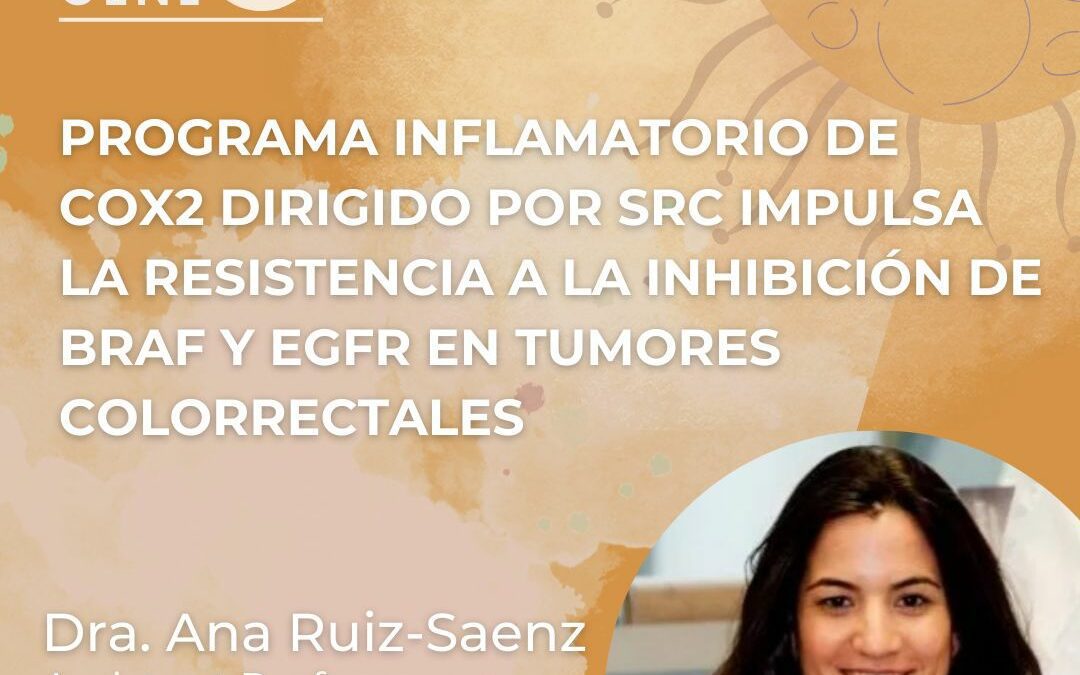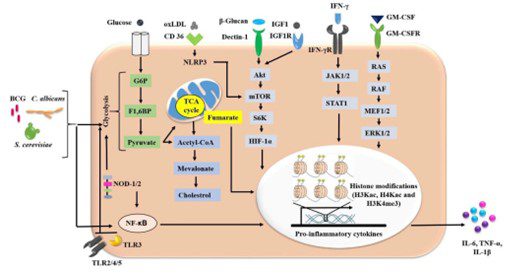Ana Ruiz, CENL Associate and Assistant Professor in Cell Biology and Medical Oncology at Erasmus University Medical Center in the Netherlands, leads a study from the University of California San Francisco finding that an inflammatory COX2 program transmitted by SRC drives resistance to BRAF and EGFR inhibition in colorectal tumors and demonstrates that COX2 inhibition inhibits tumor growth in animal models with patient tumors.
Metastatic colorectal cancer (CRC) is the second type of cancer after lung cancer, which causes the highest mortality in the world. The BRAFV600E mutation in colorectal cancer confers a poor prognosis despite the advanced targeted therapies that have been developed in recent years and are currently used in the clinic. In order to identify mechanisms of resistance to treatments that co-inhibit several protein kinases (BRAF-MEK-EGFR), we used a high-throughput kinase activity mapping platform.
This study shows that SRC proto-oncogene activity is systematically activated in tumor cells treated with inhibitors for BRAF and EGFR and that coordinated inhibition of SRC with BRAF and EGFR increases the efficacy of treatment in vitro and in vivo. Mechanistically, SRC drives resistance to treatment against BRAF and EGFR independently of ERK signaling by inducing transcriptional reprogramming via β-catenin (CTNNB1).
COX2 inhibition represents a new drug repurposing strategy to overcome therapeutic resistance to current treatments for BRAFV600E-mutant colorectal cancer
Compensatory SRC activation is independent of EGFR and is mediated by an autocrine prostaglandin E2 loop that can be blocked with cyclooxygenase-2 (COX2) inhibitors. Co-inhibition of COX2 with BRAF and EGFR promotes long-lasting suppression of tumor growth in patient-derived animal models. COX2 inhibitors are already used in the clinic for other treatments. Thus, COX2 inhibition represents a new drug repurposing strategy to overcome therapeutic resistance to current treatments for BRAFV600E-mutant colorectal cancer.
References
https://www.nature.com/articles/s43018-022-00508-5
Can you help us to become more? Become a member and participate. Spread our word on the networks. Contact us and tell us about yourself and your project.

Ana Ruiz-Saenz
Assistant Professor at the Erasmus University Medical Center
Soy doctora en Biología Molecular por la Universidad Autónoma de Madrid. Realicé mi etapa postdoctoral en la Universidad de California San Francisco y actualmente dirijo mi grupo de investigación en el Erasmus University Medical Center en Rotterdam. Nuestro trabajo se centra en entender los mecanismos moleculares que dirigen la respuesta y la resistencia a terapias contra el cáncer. Una de las líneas de investigación más importantes que estamos desarrollando en este momento está orientada hacia el impacto del glicocálix (la capa de azúcares que recubre las células tumorales) en la eficacia de terapias dirigidas en cáncer de mama.
Crecí entre Arnedo y Herce, en La Rioja, a donde vuelvo siempre que puedo. Me gusta disfrutar de tardes interminables con los amigos, tocar el piano, viajar y descubrir nuevos lugares.



